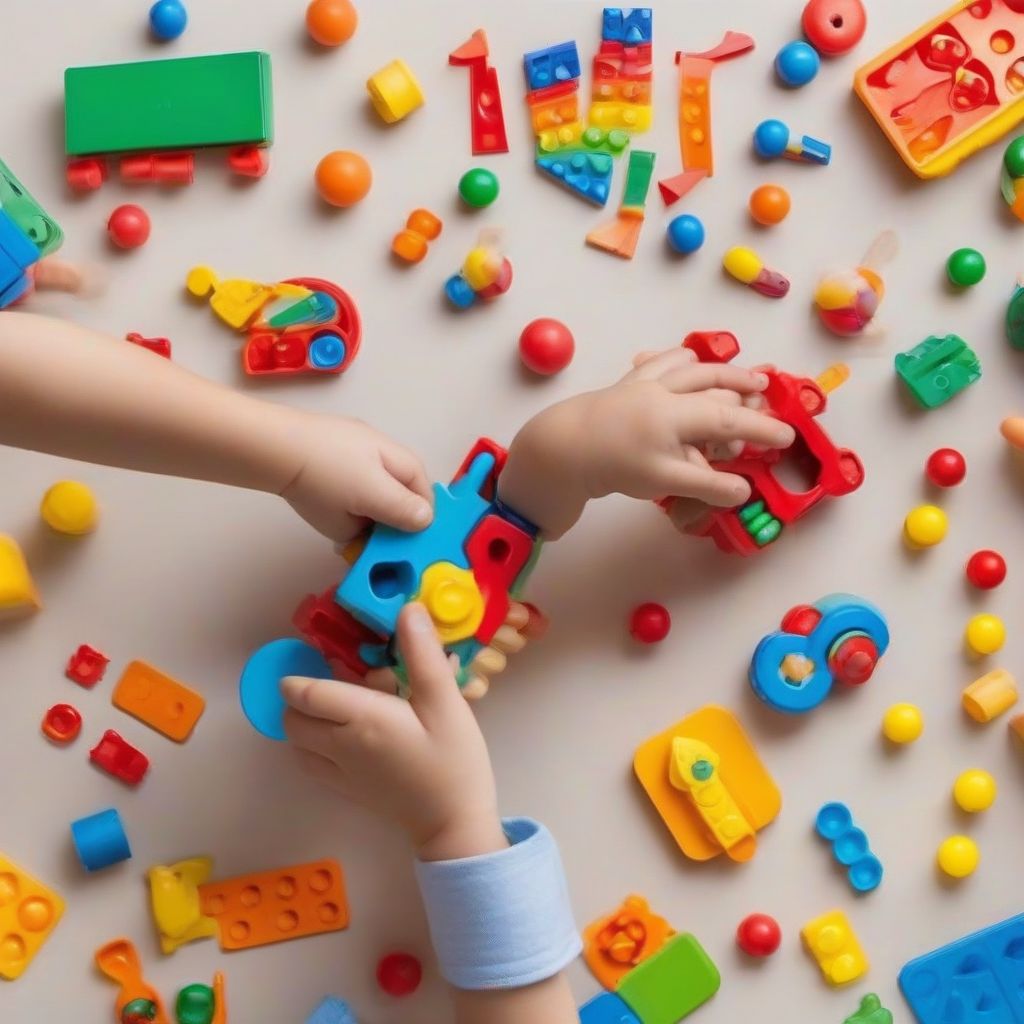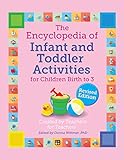“Children are like wet cement. Whatever falls on them makes an impression.” This insightful quote by Dr. Haim Ginott underscores the profound importance of early childhood development. These formative years, from birth to age eight, lay the foundation for a child’s future – shaping their physical health, cognitive abilities, social skills, and emotional well-being.
As a nutritionist and meal prepping coach, I’ve witnessed firsthand how crucial early nutrition is for a child’s growth. But early childhood development encompasses so much more than just physical health. It’s about nurturing a child’s holistic development, fostering their curiosity, and setting them on a path toward lifelong learning and success.
Understanding the Building Blocks: Key Areas of Early Childhood Development
Early childhood development is a multifaceted process, encompassing several interconnected domains:
1. Physical Development:
This domain involves developing fine and gross motor skills, from mastering the pincer grasp to running and jumping. It also includes physical growth and milestones like rolling over, crawling, and walking.
2. Cognitive Development:
This area focuses on a child’s ability to think, learn, and solve problems. It includes language development, memory, attention, and reasoning skills.
3. Social and Emotional Development:
This domain involves learning to interact with others, understand and manage emotions, and develop self-regulation skills. It includes developing empathy, forming relationships, and learning to cooperate.
4. Language and Communication Development:
This area encompasses learning to understand and use language, both spoken and written. It includes developing vocabulary, grammar, and communication skills.
Why Early Childhood Development Matters: Shaping a Brighter Tomorrow
The early years are a period of rapid brain development. During these critical years, neural connections are formed at an astonishing rate, shaping a child’s cognitive abilities, learning capacity, and social-emotional growth.
Here’s why focusing on early childhood development is crucial:
- Improved Cognitive Abilities: Research shows that early learning experiences have a direct impact on a child’s cognitive development, leading to enhanced language skills, problem-solving abilities, and critical thinking.
- Enhanced Social and Emotional Intelligence: Children who develop strong social and emotional skills in their early years are better equipped to navigate relationships, manage their emotions, and develop resilience.
- Greater Academic Success: Studies have linked quality early childhood education to greater academic achievement, higher graduation rates, and increased earning potential later in life.
- Reduced Behavioral Problems: By fostering positive social-emotional development, we can help children develop self-regulation skills and reduce the likelihood of behavioral issues.
- Healthier Lifestyles: Early childhood is a critical time to establish healthy habits. Children who learn about nutrition, exercise, and healthy habits are more likely to make healthy choices throughout their lives.
 Early Childhood Development Toys
Early Childhood Development Toys
Nurturing Young Minds: Strategies to Support Early Childhood Development
Every interaction, experience, and environment plays a role in shaping a child’s development. Here are some effective ways to support early childhood development:
- Provide a Stimulating Environment: Create a home or classroom environment rich with opportunities for exploration, discovery, and play. Offer age-appropriate toys, books, and activities that engage a child’s senses and encourage creativity.
- Engage in Responsive Caregiving: Respond to a child’s needs with warmth, sensitivity, and consistency. Provide comfort, reassurance, and opportunities for interaction and bonding.
- Talk, Read, and Sing: Engage in frequent conversations, read aloud daily, and sing songs together. These activities stimulate language development, boost vocabulary, and enhance communication skills.
- Encourage Play: Play is essential for a child’s development. Provide ample opportunities for both structured and unstructured play, allowing children to explore, experiment, and use their imaginations.
- Set Limits and Boundaries: While fostering independence is crucial, establishing clear limits and boundaries provides children with a sense of security and structure.
- Promote Healthy Habits: Encourage healthy eating habits by providing nutritious meals and snacks. Make physical activity a part of your daily routine.
- Seek Professional Support: If you have concerns about your child’s development, don’t hesitate to reach out to your pediatrician or a qualified early childhood development specialist.
Investing in Our Future: The Importance of Early Childhood Education
Access to quality early childhood education programs plays a pivotal role in supporting early childhood development. These programs provide children with:
- Structured Learning Opportunities: Early childhood educators create engaging learning experiences that foster cognitive, social, and emotional growth.
- Socialization with Peers: Interacting with other children in a structured setting helps children develop social skills, learn to cooperate, and navigate peer relationships.
- Support for Families: Many early childhood education programs offer resources and support to families, connecting them with valuable information and services.
Investing in early childhood education is an investment in our collective future. By providing all children with a strong start, we empower them to reach their full potential and contribute to society.
Conclusion: Championing the Potential of Every Child
Early childhood development is a journey, not a destination. Every child develops at their own pace, and there is no one-size-fits-all approach. By understanding the key areas of development, providing a nurturing environment, and seeking support when needed, we can empower all children to thrive.
Let’s continue to champion the potential of every child, ensuring that their early years lay the groundwork for a bright and promising future. What steps will you take today to nurture a young mind? Share your thoughts and experiences in the comments below.
For more insights on supporting your child’s social development, explore our article on Social Development in Children.
- Bantam, A nice option for a Book Lover
- Condition : Good
- Schaefer, Charles E. (Author)
- English (Publication Language)
- Christakis, Erika (Author)
- English (Publication Language)
- NAEYC (Author)
- English (Publication Language)
- Redleaf Press (Author)
- English (Publication Language)
- Clarke-Fields MSAE, Hunter (Author)
- English (Publication Language)
- Oster, Emily (Author)
- English (Publication Language)
- Donna Wittmer (Author)
- English (Publication Language)
- Stampfer, Maria (Author)
- English (Publication Language)
- Gross, S.M. (Author)
- English (Publication Language)










